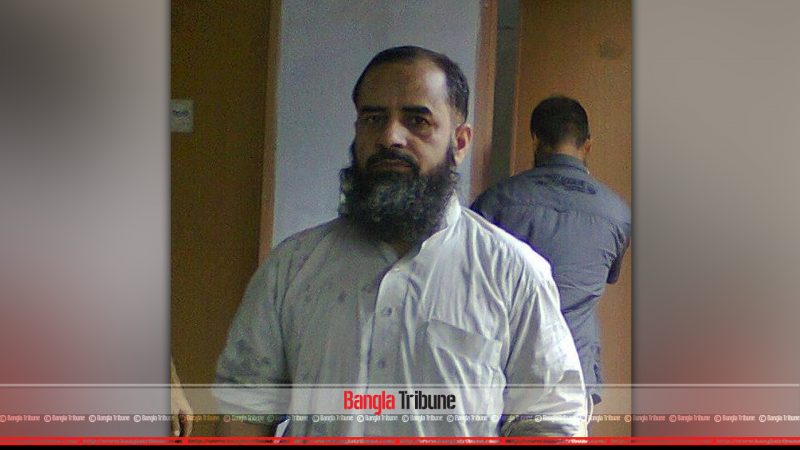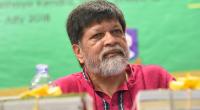 The 2004 grenade attack on the Awami League rally can be easily described as one biggest terror attacks in the history of Bangladesh.
The 2004 grenade attack on the Awami League rally can be easily described as one biggest terror attacks in the history of Bangladesh.
The attack on Aug 21 that year was carried out on an anti-terrorism rally at Bangabandhu Avenue during the BNP-Jamaat’s regime.
The then-leader of the opposition Sheikh Hasina was the leading speaker at the rally.
She was stepping off the truck, which was being used as a dais when the assailants hurled the grenades into the rally. Investigators said 13 to 14 grenades were detonated on the day.
Among the 24 people killed in the blasts was Bangladesh Mohila Awami League president Ivy Rahman, wife of senior Awami League leader Zillur Rahman, who was later to be elected the country’s president. The attack left Sheikh Hasina with hearing problems.
Late Dhaka mayor Mohammad Hanif was among the over 500 people injured in the explosions.
A total of 52 people have been charged in two cases over the attack — one over the killings and the other under the Explosives Act and one of them was Pakistani national Abdul Majed Butt alias Yusuf Butt.
Butt, who speaks fluent Bangla and even had married a Bangladeshi woman, was sent to Bangladesh in 2000 to build a safe home in Bangladesh for Pakistani terrorists.
On Dec 6, 2009, Yusuf gave a 14-page confessional statement before the court detailing his organisation’s terrorist activities across Bangladesh, India and Pakistan.
“It was August 2004; Mawlana Tajuddin asked me to meet him at Mohammadpur’s Sat Masjid mosque, where I found Mawlana Adbus Salam and Mufti Hannan (executed HuJI,B top leader) with him. Tajuddin said it will be difficult for us to operate Bangladesh and India if the Awami League comes in power and the only way to stop it was to eliminate Sheikh Hasina. With her out of the scene, the party will split and will never be able to come in power,” reads the statement. “Responding to Salam’s query on how to get it done, Tajuddin said the grenades in possession of him will be used. He also said that his brother Abdus Salam Pintu, a minister, will provide necessary cooperation from the administration. Tajuddin said that the BNP was in power then and if the Awami League takes office it will be impossible to execute the plan. Salam, however, said the matter needs to be further discussed. But Tajuddin said there was nothing to worry as his brother assured him,” Butt said in his statement.
“Responding to Salam’s query on how to get it done, Tajuddin said the grenades in possession of him will be used. He also said that his brother Abdus Salam Pintu, a minister, will provide necessary cooperation from the administration. Tajuddin said that the BNP was in power then and if the Awami League takes office it will be impossible to execute the plan. Salam, however, said the matter needs to be further discussed. But Tajuddin said there was nothing to worry as his brother assured him,” Butt said in his statement.
Yusuf also said that the grenades used in the Aug 21 attack were with Tajuddin, which were supplied from Pakistan by Mujaffar Shah, a leader of Pakistan-based terrorist outfit Tehrik-i-jihadi Islami (TJI).
Grenades from this very consignment were used in several other attacks, including the 2004 attack on the then British Envoy Anwar Chowdhury, attack on Suranjit Sengupta’s rally the same year, attack on the then Sylhet Mayor Badruddin Kamran and the assassination of Former Finance Minister Shah AMS Kibria in Habiganj.
Also Read: Intelligence officials helped Maulana Tajuddin to flee Bangladesh
Born in the Indian-administered Kashmir, Yousuf Butt is the eldest of the four children of Abdur Rahaman Butt, a resident of Terigaon in Islamabad district.
A Biology graduate, Butt became involved with Pakistan-based Hijbul Mujahideen.
Formed in 1989, Hizbul Mujahideen (HM) is considered the largest guerrilla organisation active in Indian-administered Kashmir.
It is also considered to be the only militant group led by and composed of mostly ethnic Kashmiris from Indian-administered Kashmir.
By 1990, Butt was a trained terrorist operating out of India’s Jammu and Kashmir region.
He was later sent to Pakistan-controlled Azad Kashmir’s capital Muzaffarabad, where he received further training supervised by the Pakistani Army. In 1993, Butt was sent to the Pakistani capital of Islamabad, where he was in charge of the HM’s sub-office.
In 1993, Butt was sent to the Pakistani capital of Islamabad, where he was in charge of the HM’s sub-office.
Until late 1999, Butt was responsible for maintaining relations with Middle Eastern countries and raising funds, which were sent to HM’s headquarters in Muzaffarabad.
Upon HM leadership’s orders, Butt and his accomplice Salahuddin Shah travelled to Bangladesh in January 2000 with the responsibility of supplying arms to Kashmir through Bangladeshi soil.
He was received in Dhaka by Mawlana Tajuddin.
Butt returned to Pakistan-controlled Kashmir a few days later, only to come back in 2002, when the BNP-Jamaat alliance government was in power.
Until his arrest in June 2007, he frequently travelled between Bangladesh and Pakistan.
In 2003, he married Bangladeshi woman Nahid Layla Kakon, who hailed from Sirajganj.
In her statement before the court in September 2013, Kakon detailed Yusuf’s connection with the attackers, information on Pakistani terrorists travelling to Bangladesh and the funds, arms used for the attack.
Kakon told the court that, she was introduced to Yusuf by one Arif Hasan Suman, another key accused in the Aug 21 case.
Later, they fell in love and eventually got married, which helped Yusuf to obtain a Bangladeshi passport on false information.
Kakon said that plainclothes policemen detained Yusuf from Sirajganj in June 2007 and she had failed to trace him until January 2007, when he was formally shown arrested in an arms case in Dhaka.
They, however, are not married anymore.
According to Yusuf’s statement given to court, operatives of a number terrorist outfits based in Pakistan and Afghanistan based outfits were active in Bangladesh, which included his organisation Hizbul Mujahideen, Tahreek-e-Jihad-e-Islami (TJI), Lashkar-e-Taiba (LeT), Jaish-e-Mohammed, Harakat ul-Mujaheddin, Al Badr (Jammu and Kashmir ) and Harkat-ul-Jihad-al-Islami (HuJI).
It was clear from his testimony that foreign terrorists frequently travelled to and from Bangladesh without any trouble during the BNP-Jamaat regime.
In his statement, Yusuf clearly outlined the millitants' motives to assassinate Hasina
>> Islamist militants need a government of their choice to destabilise India and Hasina is obviously the wrong choice.
>> As Hasina’s promotes secularism, militants view her as an enemy of Islam.
>> Intellectuals fostering anti-Islam views rise in Bangladesh when Hasina is in power.
>> Awami League will split into several factions if Hasina is eliminated, ensuring that the party will never come in power again.
>> Pakistan, its intelligence agencies, mainstream political parties and Islamist militant outfits consider Hasina as their arch-enemy.
>> Political parties in Bangladesh, who back militant outfits, opposes Hasina’s rule.
>> Bangladeshi political parties, who were in power or allied with ruling governments, dislike Hasina.
>> Hasina is also deemed an enemy by various militant outfits active in India other than the religion-based ones.


